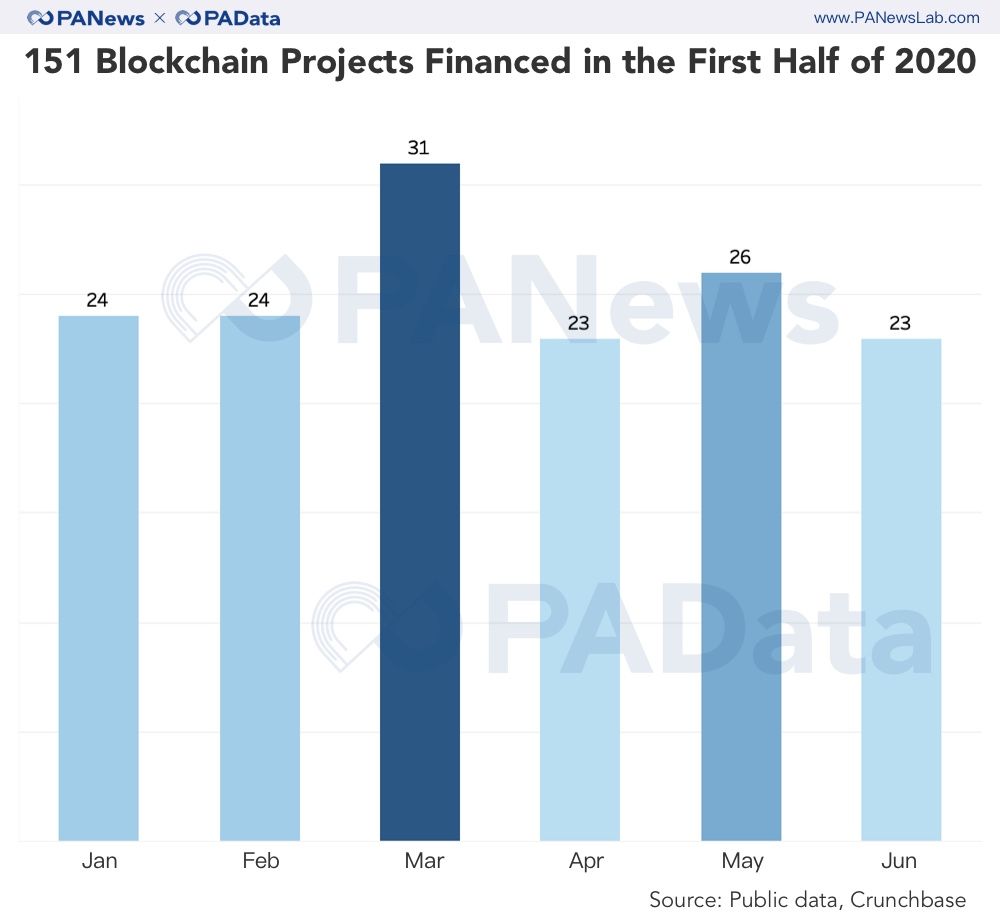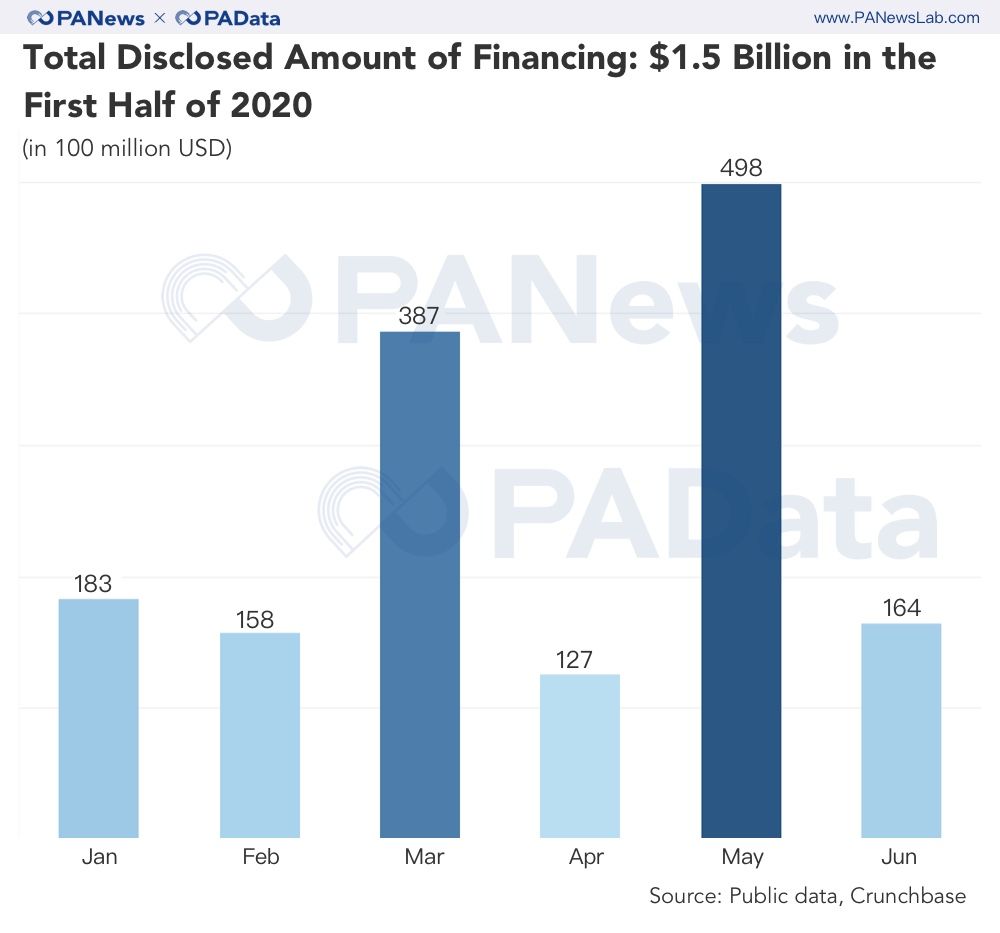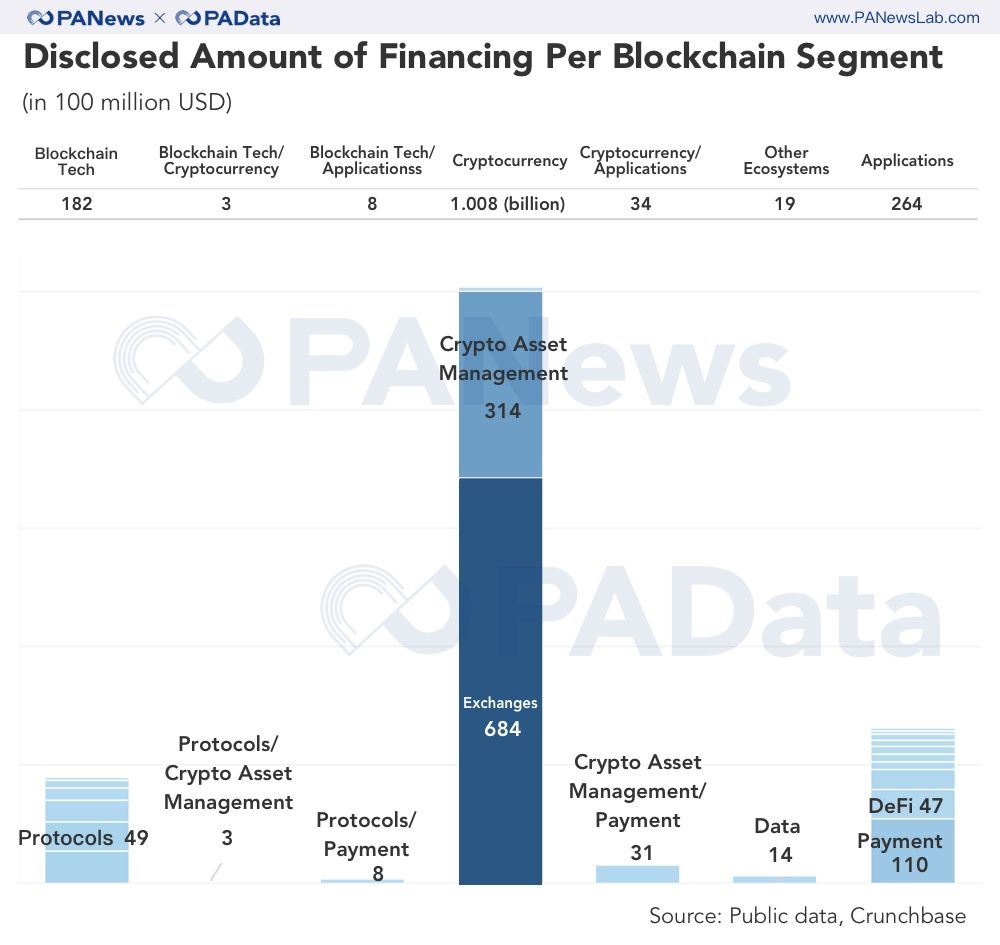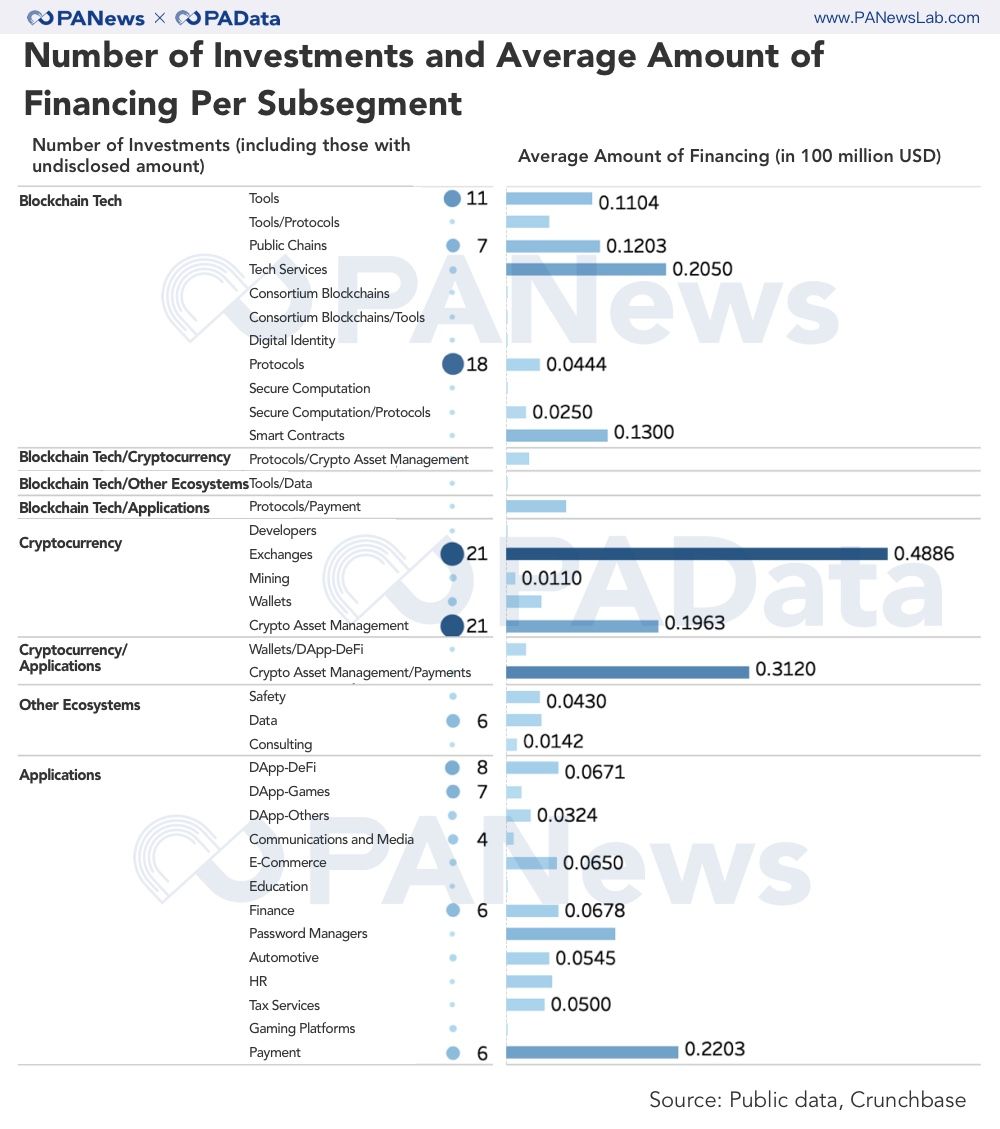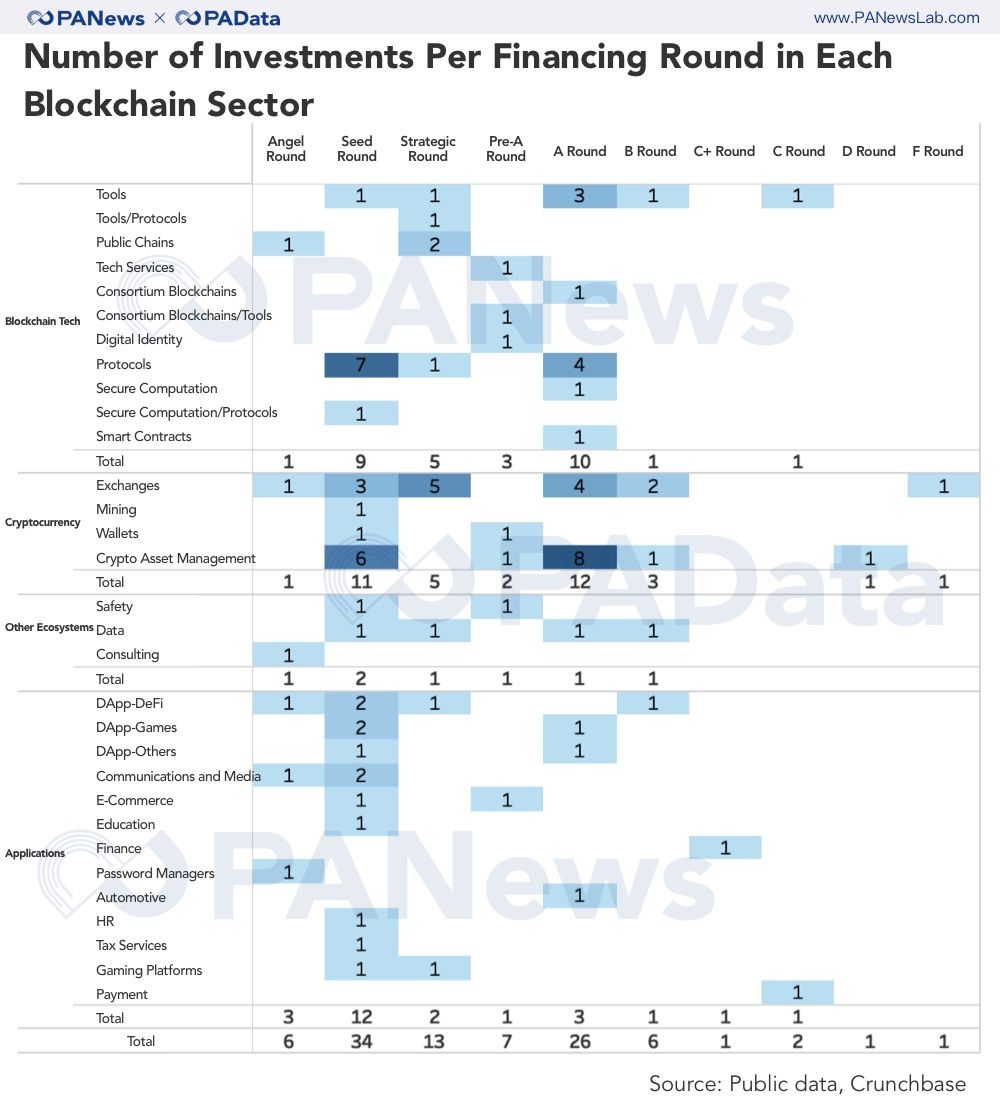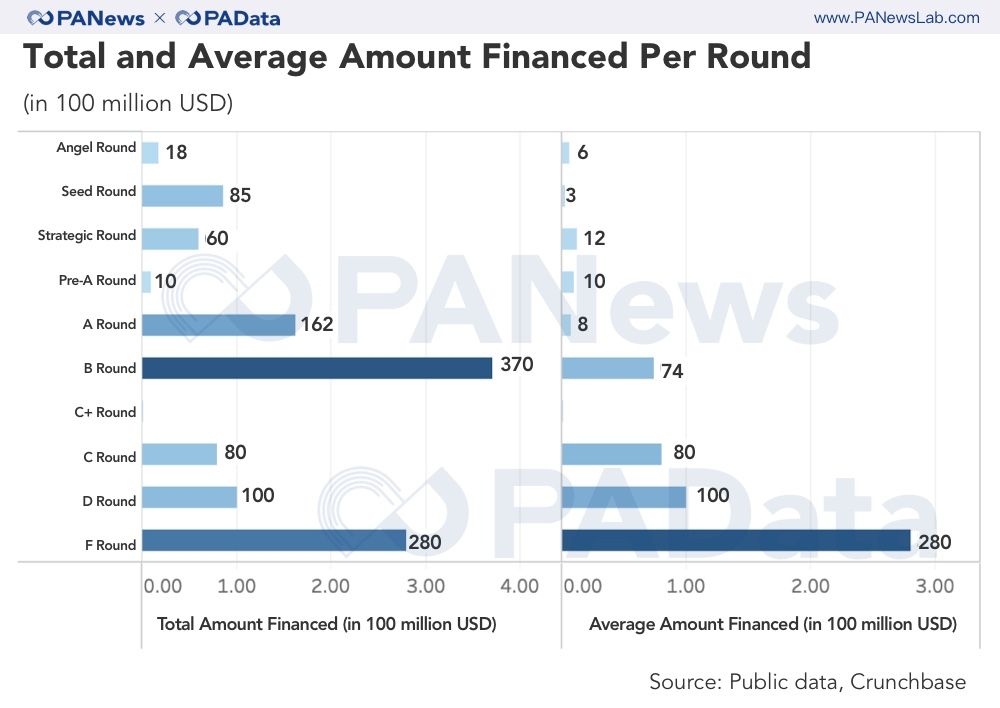There were also 3 ICOs, including 1 ICO auction, during the first 6 months of 2020 raising a total of approximately $44 million. Additionally, there was one token financing (method of financing not disclosed), an ETH donation, and one STO (Reg CF) which raised $1 million in funding. None of these methods of financing are common anymore in the blockchain industry.
VC Investment Trends: 14 Investment Firms Invest in 3 or More Projects. Blockchain VCs Gravitate Towards Crypto Asset Management
Counting only the publicly disclosed investors, a total of 342 (institutional and individual) invested in blockchain in the first half of 2020. Of these, 14 investment firms invested in 3 or more blockchain projects. Fenbushi Capital, Polychain Capital, Pantera Capital, IDEO Colab Ventures, Digital Currency Group, and Coinbase Ventures made 5 separate investments. Aside from PolyChain Capital which invested in 4 different blockchain projects, the other 5 investment firms each invested in 5 different blockchain projects.
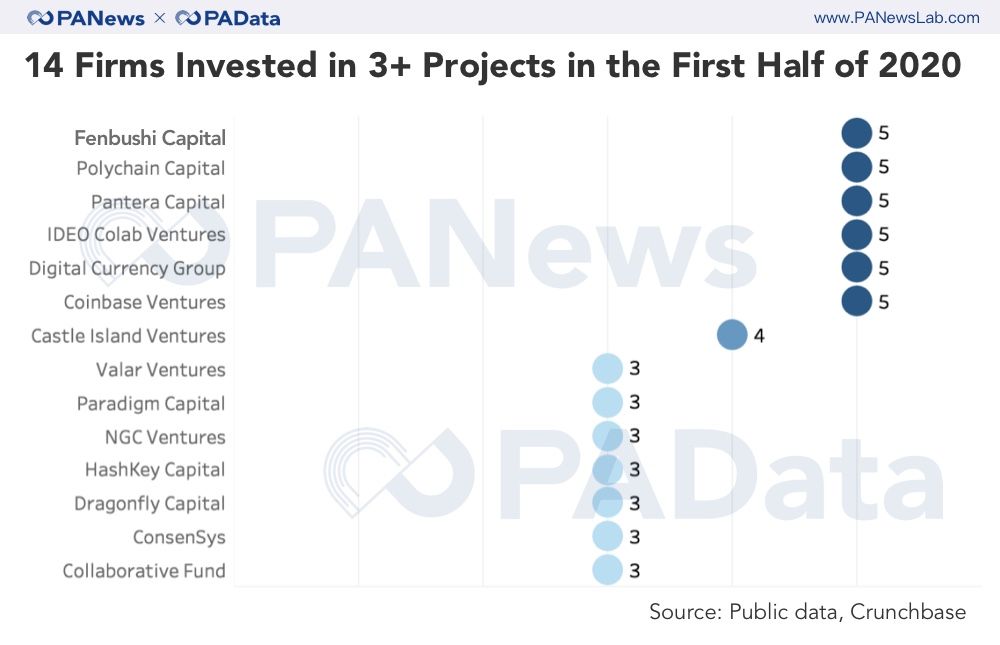
Using the available information about the investors and the total amount financed, PAData estimated the investment amount of each investor. Not taking into consideration whether an investor is a lead or following investor, PAData divided the total amount financed by the total number of investors to obtain a rough estimate. This estimate, however, may be higher than the actual amount and should only be used as a reference.
Based on such estimations, there were 16 investors who invested over $20 million in blockchain during the first half of 2020. Guy Schwarzenbach and Ribbit Capital invested the most, $103 million and $58 million respectively. Guy Schwarzenbach invested in SEBA, a Swiss crypto bank, and Ribbit Capital invested in trading platforms Robinhood and Lightning Labs.
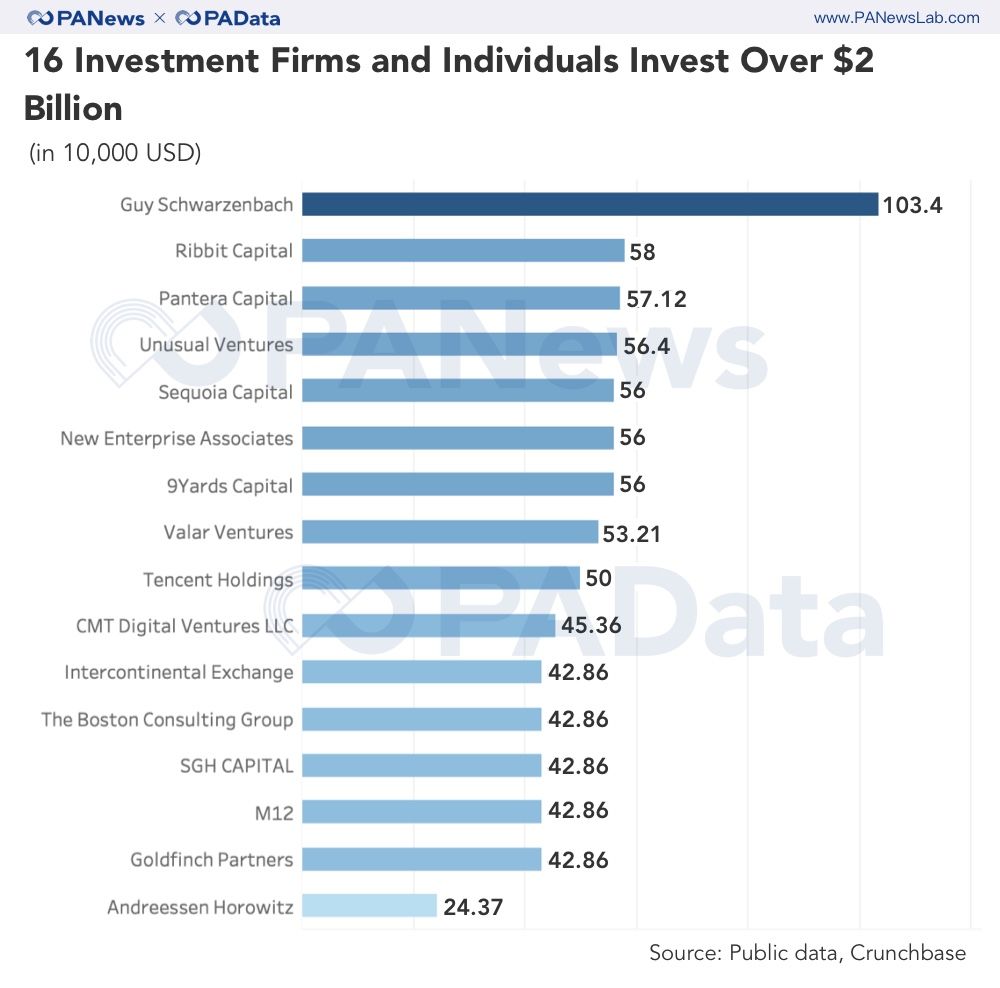
In order to gain a better understanding of the preferences of different investors, PAData has categorized investors based on what type of institution or business they are and has shown the types of blockchain projects they invested in.
In China, four government-backed investors made investments in blockchain projects. Filenet acquired funding from the Xiong’an Investment Fund; eSand (一砂信息) acquired funding from the Shenzhen Innovation Investment Group; the Trade Finance Blockchain Platform of the People's Bank of China received special financing; and C Chain (创飞科技) acquired funding from Shanghai Nanxiang Venture Capital Investment (南翔创投).
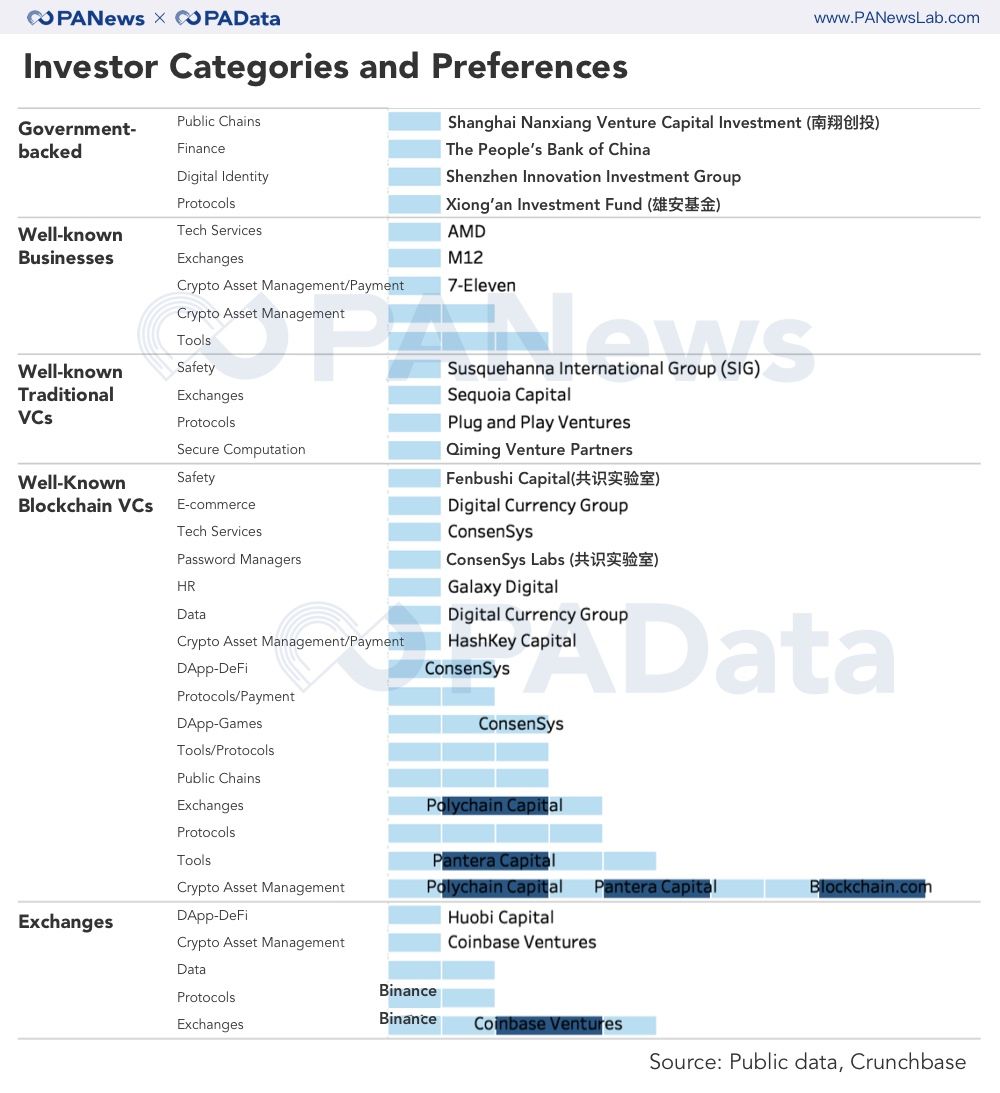
Only 4 blockchain project investments were made by well-known traditional VCs during the first half of 2020. These blockchain project investments were made in four different areas of the blockchain industry, security, protocols, private computing, and exchanges. Unlike traditional VCs, the most preferred investment area of well-known blockchain VCs was crypto asset management. Seven blockchain VCs made 10 investments with Polychain Capital, Pantera Capital, and Blockchain.com each making 2 separate investments. Blockchain VCs also favored blockchain tools, investing in them on 5 occasions. Moreover, blockchain VCs invested in a wide variety of projects including blockchain technology, cryptocurrency, blockchain applications, and other ecosystems.
It is also worth noting that the industry’s most profitable exchanges such as Binance, BitMEX, and Coinbase all invested in other exchanges. They invested primarily in derivatives exchanges and large exchanges in emerging markets. For example, BitMEX's parent company, HDR Group, invested in Sparrow, a Singapore based options trading platform. Binance invested in Tokocrypto, Indonesia’s leading licensed cryptocurrency trading platform. Coinbase Ventures invested in CoinDCX, India’s cryptocurrency exchange. The industry’s most profitable exchanges also invested in other crypto trading related projects such as data, crypto asset management, and DeFi projects.
